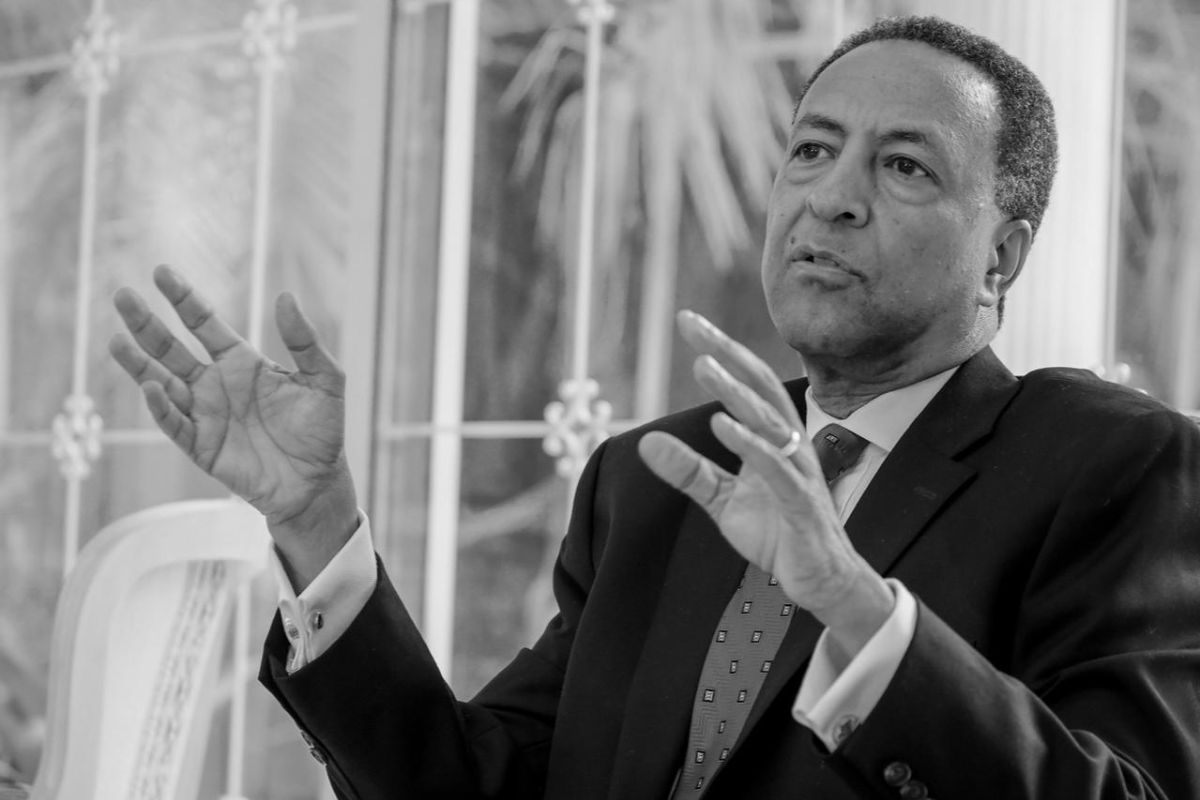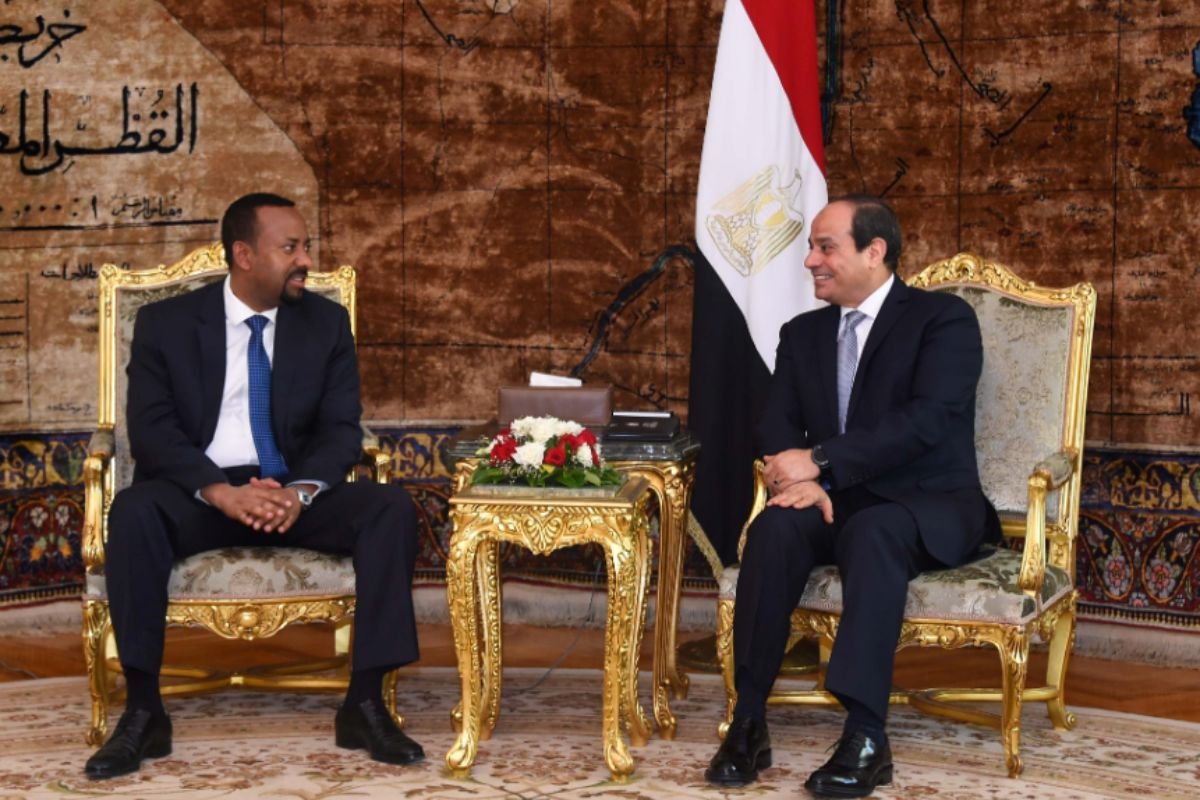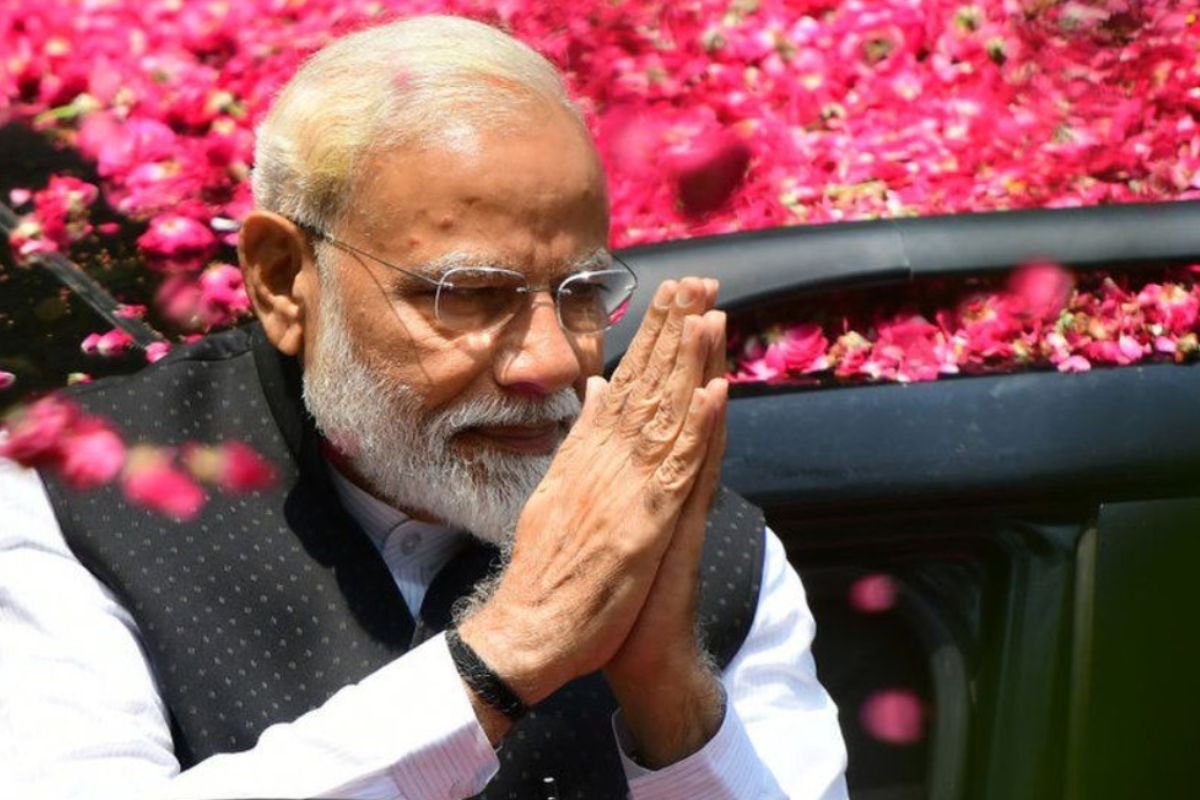

NEW DELHI: Last year saw an unexpected development in geopolitics with the expansion of BRICS, as five new nations were welcomed into the fold: Egypt, Ethiopia, Iran, Saudi Arabia, and the UAE. However, the invitation extended to Ethiopia was particularly surprising, given its status as an unconventional BRICS contender. Just before 2024, Fitch downgraded Ethiopia to “restricted default” due to missed Eurobond payments.
Therefore, despite joining the alliance at a later stage, Ethiopia actively sought BRICS membership with determination. With its position as the second-most populous country in Africa and the tenth largest in terms of land area, Ethiopia recognised BRICS as a platform to enhance its global standing.
During an exclusive interview with The New Indian, Zemedeneh Negatu, Global Chairman of Fairfax Africa Fund, addressed Ethiopia’s entry into BRICS, exploring the reasons behind its inclusion, the geopolitical dynamics among member states, and how it could impact the country’s ability to cooperate effectively within the alliance. Negatu also discussed how BRICS membership might influence Ethiopia’s relations with Western nations and its burgeoning ties with India, a BRICS member, termed by several experts as the world’s fastest-growing major economy.

The inclusion of Ethiopia, alongside its neighbour and rival Egypt, as a new member of the BRICS group of emerging economies – Brazil, Russia, India, China, and South Africa – was unexpected. Analysts had anticipated that Nigeria, Africa’s largest economy, and Algeria, the continent’s largest country by land area, would be the chosen candidates.
However, owing to its large population, Ethiopia secured entry into the alliance. Speaking to Chinese state broadcaster CGTN, Ethiopia’s Finance Minister Ahmed Shide has emphasised that joining the alliance represented a significant diplomatic achievement for his country.
Also Read: We want port for crucial Red Sea access: Zemedeneh Negatu on Ethiopia-Somaliland deal | EXCLUSIVE
“Ethiopia will continue to cooperate with its traditional partners,” he said, adding, “But Ethiopia will also significantly improve its relations with new partners, such as the BRICS countries, whose economies are growing quickly.”
Highlighting the key factors that led to Ethiopia’s selection, Negatu said, “BRICS represents the future of the world, a gradual shift of economic power from West to East. As emerging economies like India, China, and Brazil rise, they are poised to become the superpowers of tomorrow. Ethiopia, despite currently having a smaller GDP, boasts one of the largest populations among these nations.
“With economic forecasts projecting Ethiopia to be among the top 15 or 16 largest economies in the next 40 years, totalling 6.2 trillion dollars, it logically made sense for Ethiopia to join BRICS now. The inclusion of influential countries like Saudi Arabia, despite their smaller population, shows the importance of the South having a voice in global decision-making.
Also Read: Why Egypt chose BRICS over individual bilaterals? Cairo expert explains | EXCLUSIVE
“As Nigeria and numerous other nations contemplate joining BRICS, it’s evident that the institution is gaining momentum. While discussions about membership size continue, BRICS remains an influential institution, necessitating the participation of countries like Ethiopia. Moreover, with Ethiopia’s sustained growth trajectory, it’s foreseeable that by the mid to late 2030s, Ethiopia’s GDP will surpass that of South Africa, which is proof of its potential significance within BRICS.”

Previously, several critics have highlighted concerns about the perceived ineffectiveness of BRICS, noting its absence of clear membership criteria unlike the European Union (EU) or NATO. BRICS is seen as a collection of countries with seemingly disparate interests, united mainly by a vague sense of discontent with the US-led “rules-based order.”
For instance, one notable feature of the “big bang” expansion of BRICS is the inclusion of nations like Iran and Saudi Arabia, traditional geopolitical adversaries in the Persian Gulf region, or Ethiopia and Egypt, which are currently in a power struggle over the Grand Ethiopian Renaissance Dam (GERD).
Addressing the geopolitical tensions between BRICS members like China and India, Saudi Arabia and Iran, and Ethiopia and Egypt, Negatu opined, “Well, you see, it’s not uncommon for clubs to have differing opinions among members. Now, I’m aware of the tensions between China and India, and yes, you mentioned Egypt and Ethiopia. Specifically, the issue between Egypt and Ethiopia revolves around one main thing: the Grand Ethiopian Renaissance Dam on the Nile River. But I believe that will eventually get resolved.
Also Read: BRICS membership cure-all for Egypt’s economic woes? Cairo expert explains | EXCLUSIVE
“By the way, the dam is nearly finished. So, I wouldn’t dwell too much on the smaller disagreements among member countries because the larger goal is for these nations to have a say where decisions are made. Up until now, decisions have mainly been made in Washington, Brussels, or London, and even though these countries have grown significantly, they still largely follow decisions made by the West. Now, one thing I’ve been asked before is whether these new countries joining BRICS or those considering it in the future are abandoning their traditional ties with the West. Absolutely not.”
Ethiopia, according to Negatu, will continue to be a partner with Washington, as will Saudi Arabia, the UAE, and others. “India has a strong relationship with the US, right? And let’s not forget, China is the US’s largest trading partner. So, it’s not an either-or situation. Some analysts might suggest that joining BRICS means these countries want to leave behind their partnerships with the West, but that’s not the case,” he stated, adding, “It’s more about complementing those relationships. They’re saying, ‘We want a seat at the table, and we want to shape our own growth.’”
Also Read: Leveraging Houthis, Hezbollah: Tehran expert on Iran’s ‘indirect’ role in Israel-Hamas war EXCLUSIVE
He further explained that the West developed in a different era, under different circumstances. “However, this is the 21st century, and we want to grow in our own way. But that doesn’t mean we’re cutting ties with one side or the other,” he emphasised.

On January 29, the Finance Ministry announced that India is projected to become the world’s third-largest economy within the next three years, boasting a GDP of $5 trillion, and is anticipated to reach $7 trillion by 2030, propelled by ongoing reforms. Jefferies, a global investment advisory firm, has also forecasted a positive outlook for both the Indian economy and its equity markets.
Discussing India’s potential rise to the third largest economy, Negatu said, “Absolutely, I’m glad you brought up this topic because, in our business ventures, we’ve had the privilege of partnering with numerous Indian companies, particularly in the technology sector. One of our key collaborators in software implementation ranks among the top three largest Indian tech firms. As an outsider, witnessing India’s trajectory, I’ve always believed in its inevitable rise.”
Also Read: India-Iran are bedfellows: Tehran expert on BRICS+ bond | EXCLUSIVE
Underscoring that most big companies worldwide have Indian-origin CEOs, he quipped that there’s even a story that some of them attended the same high school, fuelling speculation about a magical “fountain of talent.”
“In recent years, it’s evident that the Indian economy has experienced a significant surge. The calibre of talent emerging from India is particularly striking when you consider the leaders of some of the largest American companies. Just take Microsoft, for example. It’s truly impressive. There’s even a story that some of them attended the same high school, they drink in the cooler fountain that makes them very talented, and they go run these trillion-dollar companies. Today, Microsoft holds the title of the world’s most valuable company, with a market cap surpassing three trillion dollars, having overtaken Apple. And at its helm is Satya Nadella,” he remarked.
“Therefore, it’s no surprise that forecasts project India to become the world’s second-largest economy, after China, in the coming decades. Also, India’s rise will benefit the rest of the world. India was a leader in the non-aligned movement, which is now semi-partially converted into BRICS, India’s rise benefits emerging markets and developed nations alike. So, while some may wonder, “What took you so long?” the important thing is that you’ve finally arrived. And for that, we’re happy,” he added.
Also Read: Do we want pseudo-military organisation: Iran expert on Pakistan’s BRICS aspirations